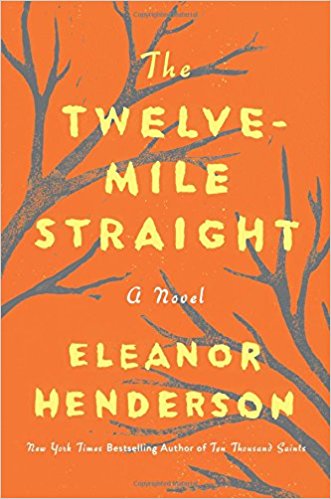The Twelve-Mile Straight
In Depression-era rural Georgia, twin babies are born to Elma Jesup. This would not normally be cause for any eyebrows to be raised, but for the fact that one baby is black and the other is white.
Events leading up to the birth of the babies are told in a series of flashbacks, alternating with scenes from the current day. Elma grows up in a household with her widowed father, Juke, and Nan, the black daughter of the servant that raised Elma after Elma’s mother passed away. Nan is mute, as her well-meaning but unknowing mother cut her tongue out of her mouth when she was a baby. Despite the lack of language, the two have forged a sisterly bond.
Elma has her eyes on Freddy, the son of the man who owns the land upon which her father is a sharecropper. But soon she becomes enamored with Genus, the black farmhand, who is brought to work on the land. Eventually Elma discovers she is pregnant. When the babies are born and one is black, Genus is accused of her rape and is lynched, while Freddy is run out of town, accused of masterminding the murder.
The Twelve-Mile Straight looks at poverty and race through the lens of history; the result is an absorbing and disturbing piece of literary fiction that does not sugarcoat any of the difficult topics it covers. It is also a tale of survival, of societal norms, and of family. The characters are well-fleshed out, and though the book is a touch lengthy and perhaps could have been wrapped up earlier, the stellar writing makes the extra time spent wholly worthwhile.










